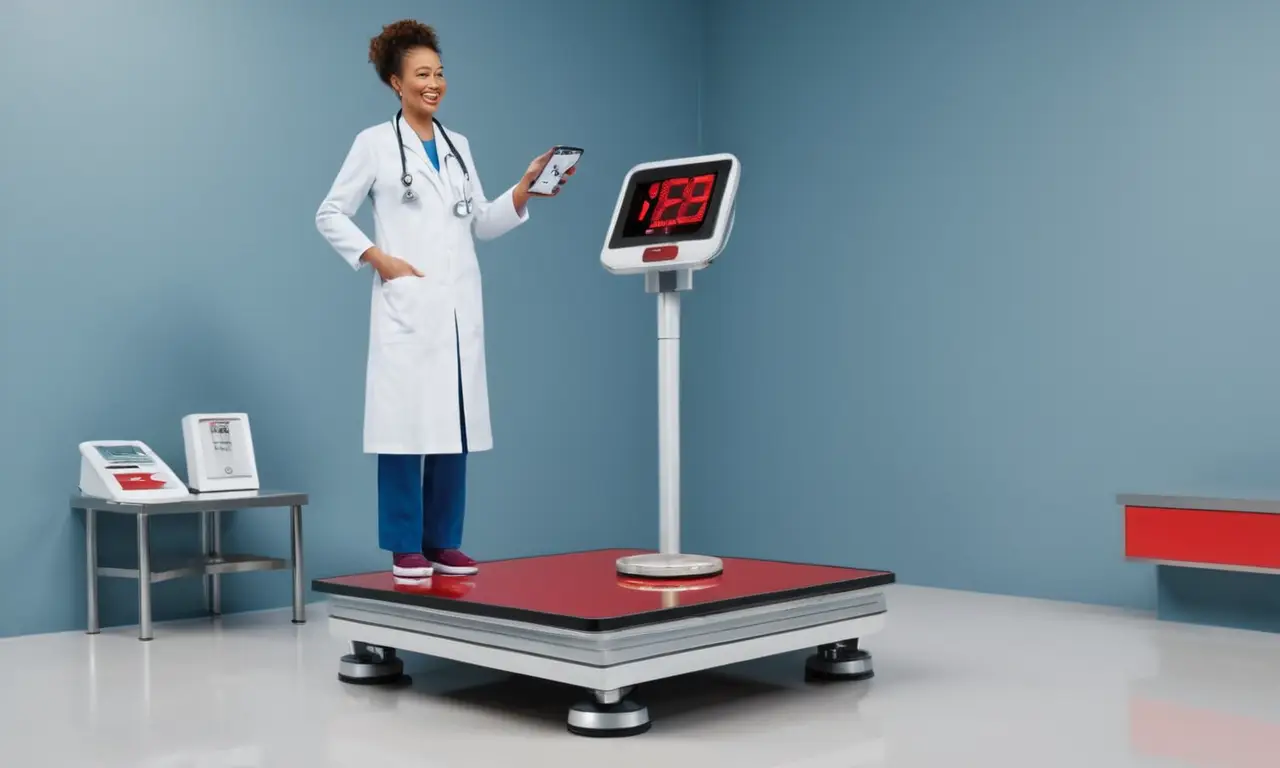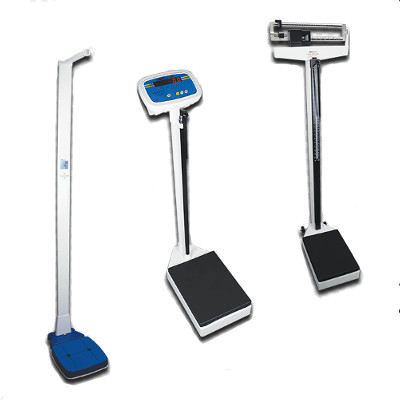Have you ever wondered if the scale at your doctor’s office actually weighs more than the one at home? It’s a common question, fueled by the perception that medical equipment is somehow superior or heavier-duty. While doctor’s scales certainly play a crucial role in healthcare, their weight isn’t inherently different from high-quality home scales. This article will delve into the differences between doctor scales and home scales, exploring factors like accuracy, construction, and features to shed light on this intriguing question.
This article will compare doctor scales and home scales across various aspects, examining their weight accuracy, construction materials, digital displays, and additional features like height measurement capabilities. By understanding these distinctions, you can gain a clearer perspective on the purpose and functionality of each type of scale.
Doctor Scales vs. Home Scales
Doctor scales, also known as clinical scales, are specifically designed for use in healthcare settings. They are calibrated to provide highly accurate weight readings, essential for monitoring patient health and progress. Home scales, on the other hand, are intended for personal use and typically offer a less precise measurement range.
While both types of scales share the fundamental purpose of measuring weight, their construction and features often reflect their intended use. Doctor scales tend to be more robust and durable, built to withstand frequent use in a busy medical environment. Home scales, conversely, prioritize portability and affordability, often featuring lighter materials and simpler designs.
Weight Accuracy

Accuracy is paramount when it comes to medical weight measurements. Doctor scales are rigorously calibrated to ensure precise readings, minimizing the risk of errors that could impact patient care. They typically adhere to strict industry standards and undergo regular maintenance to guarantee consistent accuracy.
Home scales, while generally reliable, may not possess the same level of precision as doctor scales. Factors like user error, uneven surfaces, or minor calibration issues can influence the accuracy of home scale readings. However, many high-quality home scales offer commendable accuracy for personal monitoring purposes.
Construction and Features
Doctor scales are often constructed from durable materials such as stainless steel or heavy-duty plastics to withstand frequent use and cleaning. They may also feature reinforced platforms and sturdy bases for added stability. Some doctor scales incorporate additional features like height measurement capabilities, BMI calculation, and data storage for comprehensive patient assessments.
Home scales typically utilize lighter materials like plastic or aluminum to prioritize portability and affordability. Their designs often emphasize simplicity and ease of use, with clear digital displays and intuitive controls. While some home scales offer basic features like unit conversion or tare functions, they generally lack the advanced functionalities found in doctor scales.
Digital Displays

Both doctor scales and home scales commonly incorporate digital displays for easy readability. Doctor scales often feature larger, more prominent displays to ensure clear visibility in various healthcare settings. They may also utilize backlit screens for enhanced visibility in dimly lit areas.
Home scale displays typically range in size depending on the model, but they generally prioritize clarity and user-friendliness. Some home scales offer additional display features like scrolling text, backlight options, or multiple unit measurements (pounds, kilograms, etc.).
Height Measurement Capabilities
Some doctor scales include integrated height measurement capabilities, allowing for comprehensive patient assessments. These scales often feature retractable measuring rods or stadiometers that extend from the platform, enabling healthcare professionals to accurately record patient height alongside weight.
Height measurement is less common in home scales, as it’s primarily a function of dedicated stadiometers or measuring tapes. However, some advanced home scales may incorporate basic height measurement features for convenience.
Conclusion
While doctor scales and home scales share the fundamental purpose of measuring weight, their design, construction, and features reflect their distinct roles in healthcare and personal use. Doctor scales prioritize accuracy, durability, and advanced functionalities to meet the rigorous demands of medical settings. Home scales, on the other hand, focus on affordability, portability, and user-friendliness for personal monitoring purposes. Ultimately, the choice between a doctor scale and a home scale depends on individual needs and intended use.



